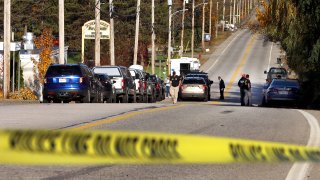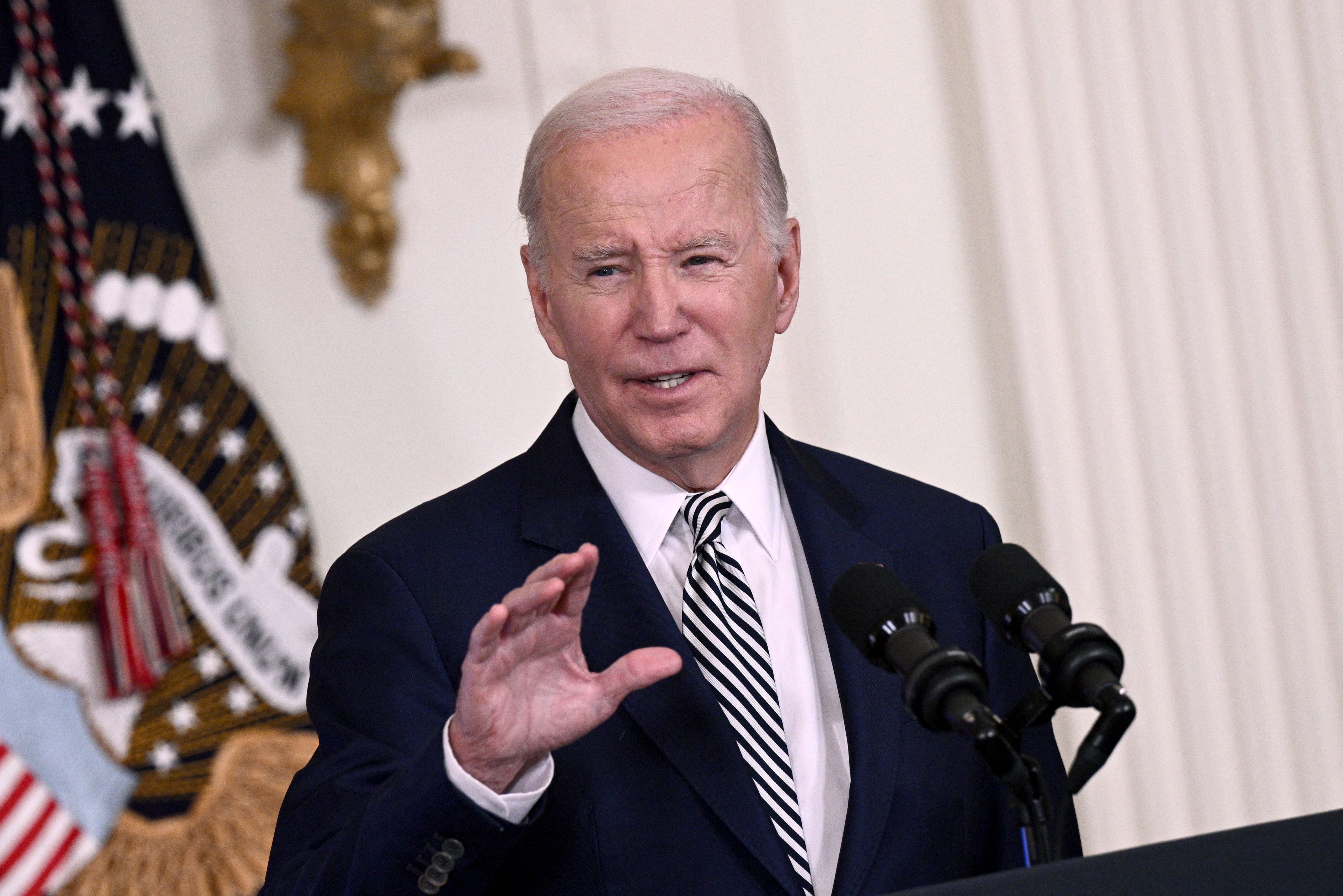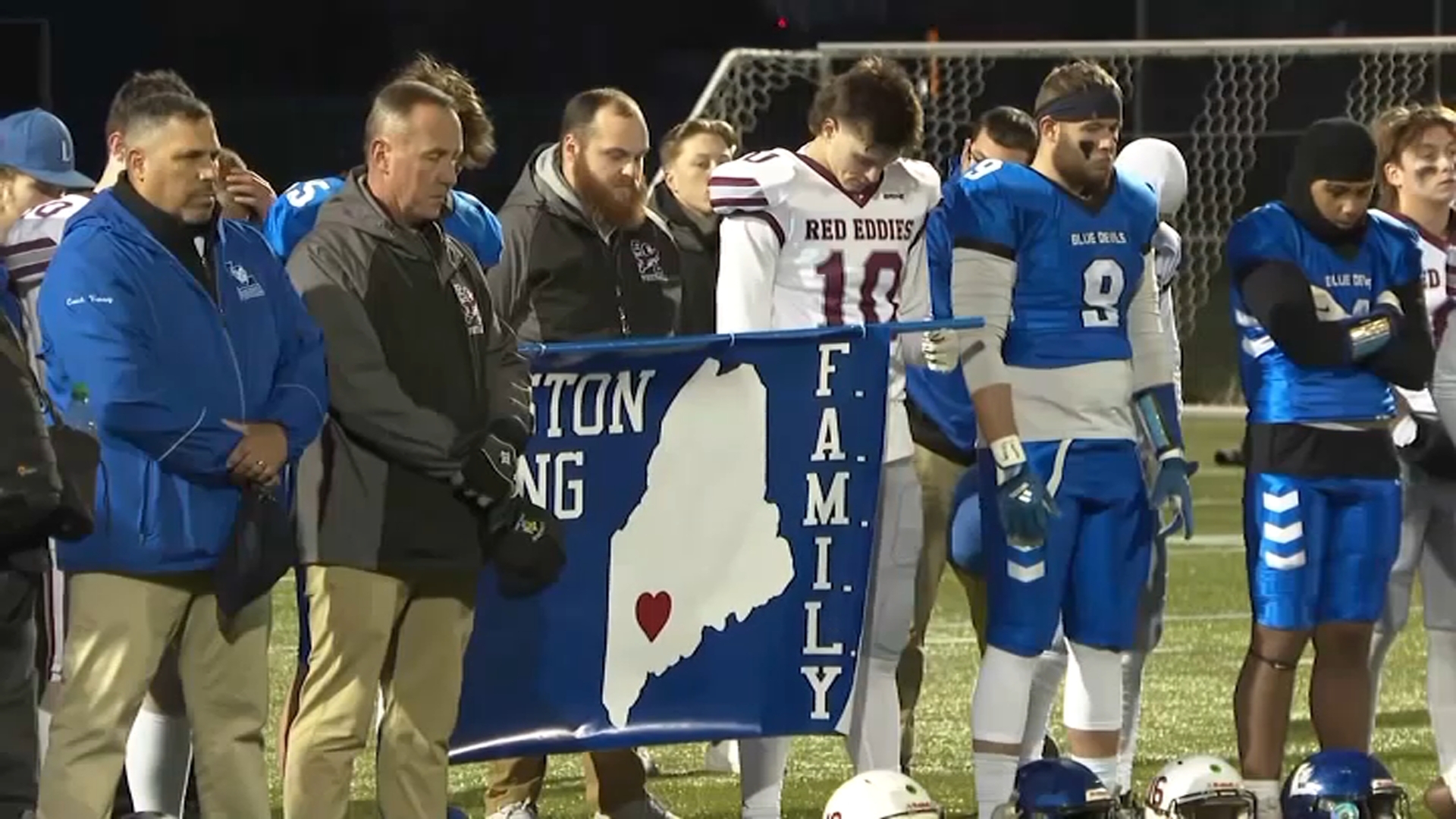
Across the nation, much of the debate around gun rights and restrictions centers on mental health. Many advocates on both sides agree that getting people with serious mental illness into treatment, and then preventing those who are dangerous from accessing guns, is key to preventing mass shootings.
Yet in the weeks and months before the mass shooting in Lewiston, there were so many red flags that people all around the killer were raising concerns to authorities. But Robert Card was still able to kill 18 people, wound another 13 and shatter a community's sense of security.
Lawmakers want answers as to why laws in two states — Maine and New York — didn’t prevent the tragedy.
“It’s a massive failure,” said Republican state Sen. Lisa Keim, sponsor of Maine’s so-called “yellow flag” law, noting that it has been successfully invoked 82 times previously.
Get New England news, weather forecasts and entertainment stories to your inbox. Sign up for NECN newsletters.
Maine’s law requires more hurdles than “red flag” laws in more than 20 states, including New York, which generally allow someone to directly petition a judge to remove someone’s guns because of mental health worries. But it’s also easier, Keim said, in the sense that a simple call to police should set it in motion.
“We’re never going to stop everything,” she said. “This one, it seems that there were too many touchpoints for neither law to come into play.”
Keim said she hopes the governor’s independent panel, which will be looking into the law enforcement response to the shootings, can provide answers ahead of lawmakers’ return to work in January.
Behind the Oct. 25 tragedy is a confusing confluence of federal and state laws.
A long-term committal for mental health treatment can make someone a “prohibited person” under federal law, but Maine also has its “yellow card” process for temporary firearm restrictions.
Under Maine’s law, a warning to police can trigger a process where an officer visits an individual and makes a judgment call on whether the person should be placed in temporary protective custody, in turn triggering assessments that with a judge’s approval can lead to a 14-day weapons restriction. A full court hearing could lead to an extension of restrictions for up to a year.
There were plenty of warnings the gunman might snap.
During military training in New York, he said people were accusing him of being a pedophile. He pushed one reservist and locked himself in his motel room, leading commanders to take him to the base hospital. From there, he was taken to a private mental health facility where he was hospitalized for 14 days. His military weapons were taken away.
Maine officials say they were unaware of any alerts from officials in New York. And it's unclear if there was any effort to invoke New York's red flag law while he was in the state.
Army spokesperson Lt. Col. Ruth Castro said she couldn’t tell The Associated Press whether the shooter was committed to a psychiatric facility on his own free will or involuntarily because of a federal health privacy law. She said the same law prevented her from saying what his diagnosis was after he was evaluated.
She denied requests to answer other questions about what the Army did and did not do to inform others of the gunman's condition, citing ongoing law enforcement investigations.
Back in Maine, reservists kept voicing their worries about the shooter after he returned in early August. Family members told a deputy that his mental health deterioration had begun in January, and his ex-wife and son had alerted police in Maine that the shooter was angry and paranoid, as well as heavily armed with 10-15 guns he’d taken from his brother’s home.
In a text early on Sept. 15, one of his fellow reservists urged a superior to change the passcode to the gate and be armed if he arrived at the Army Reserve drill center in Saco. The reservist said the gunman refused to get help for his mental illness “and yes, he still has all his weapons.”
“I believe he’s going to snap and do a mass shooting,” the reservist wrote.
That was the same day a deputy went to the shooter's home in Bowdoin, but no one was home. The deputy returned the following day and heard noises inside but no one answered the door. The deputy called for backup, but they eventually left.
The sheriff said his deputies didn’t have legal authority to knock down the door and take him, and there’s no indication that the deputy ever spoke to the shooter, the first step to triggering the state’s yellow card law.
The sheriff’s office canceled its statewide alert seeking help locating the gunman a week before Lewiston became the scene of the 36th mass killing in the U.S. this year.
Associated Press writer Bernard Condon contributed from New York.




